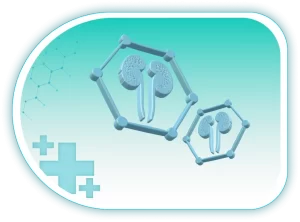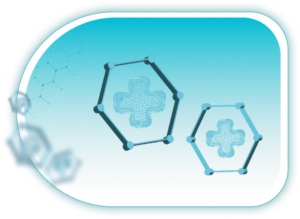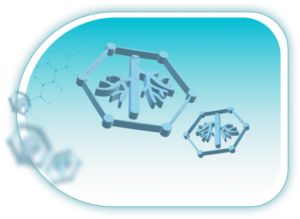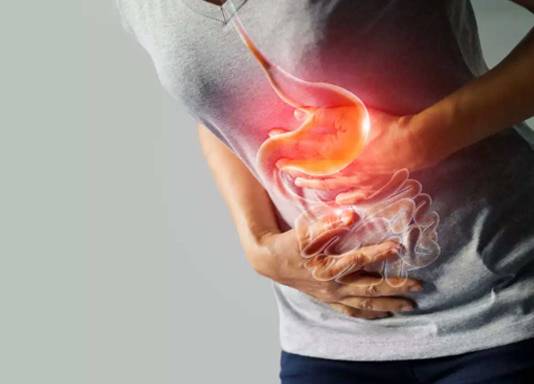Colorectal cancer (CRC) is the third most commonly diagnosed cancer among men and the second most common cancer among women worldwide. Moreover, CRC ranks second to lung cancer as a cause of cancer mortality. CRC mortality has recently been declining thanks to the early detection of cancer through CRC screening.
Etiology of CRC is known as the adenoma-carcinoma sequencing, that is, approximately 70% of CRCs develop from adenomatous polyps and 30% arise from sessile serrated lesions (SSLs). Finding and removal of these lesions by endoscopy significantly reduces CRC incidence and mortality.
Recommended CRC screening
Currently, CRC screening in average-risk individuals between ages 45 and 75 is recommended to reduce the incidence of advanced adenoma and mortality from CRC.
Although colonoscopy is the best test as it can be used both detection and removal of polyps and SSLs, 2-step method with fecal immunochemical test (FIT) is practical in terms of cost effectiveness and noninvasiveness. Current recommendation is FIT every year and colonoscopy every 10 years in average-risk individuals.
Alternative screening methods
The multitarget stool DNA (mtsDNA) test comprises an assay for mutant KRAS, methylated BMP3, methylated NDRG4, and a FIT. Compared to FIT alone, it was shown to increase sensitivity but decrease specificity. In recent studies, FIT every year plus colonoscopy every 10 years were found to be more cost-effective than mtsDNA every 3 years.
CT colonography (CTC) and colon capsule (CC) may be other candidates for alternative for colonoscopy, but are reserved for individuals unwilling or unable to undergo colonoscopy. However, the sensitivity of CTC is significantly lower than either colonoscopy or CC.
A blood test for methylated Septin 9 might be another candidate, but a recent systematic review suggests that sensitivity of the test may not be comparable to other screening tests.
Benefit of Aspirin
Multiple studies have shown the benefit of aspirin in reducing both incidence and mortality of CRC. However, it is not clear whether the benefit is outweighed by risk, including gastrointestinal or intracranial bleeding.
Association with dietary factors
Meta-analysis of prospective observational studies found convincing evidence for an association between lower CRC risk and higher intake of dietary fiber, dietary calcium, and yogurt and lower intake of alcohol and red meat. Among all solid cancers, CRC has been shown to most associated with dietary factors, followed by oral, pharyngeal, and laryngeal cancers.
Microbiome in CRC
Bacteria may affect CRC directly or indirectly, by secreting metabolites and by modulating the host immune system. Evidence from metagenomic analyses suggests a state of pathological microbial imbalance or dysbiosis in patients with CRC. As H. Pylori is known as pro-oncogenic in gastric cancers, potential pathogenic bacteria may be required for the initiation of CRC. As a biomarker for CRC screening, four species are shown to be candidates for discriminating CRC cases and controls: Fusobacterium nucleatum subsp. vincentii, F. nucleatum subsp. animalis, Porphyromonas asaccharolytica, and Peptostreptococcus stomatis. These bacteria have also been extensively analyzed of their oncogenic action in molecular level.
結腸直腸がん–最近のエビデンスと推奨
結腸直腸がん(CRC)は、世界的に男性で3番目、女性では2番目に多い癌です。さらに、CRCは癌による死亡の原因として肺癌に次いで2位となっています。 CRCスクリーニングによる癌の早期発見のおかげで、CRCの死亡率は最近減少しています。
CRCの病因は腺腫-癌シーケンシングとして知られています。つまり、CRCの約70%は腺腫性ポリープから発生し、30%は無茎性鋸歯状病変(SSL)から発生します。内視鏡検査によるこれらの病変の発見と除去は、CRCの発生率と死亡率を大幅に低下させます。
推奨されるCRCスクリーニング
現在、進行性腺腫の発生率とCRCによる死亡率を減らすために、45歳から75歳までの平均リスクの個人におけるCRCスクリーニングが推奨されています。
大腸内視鏡検査はポリープとSSLの検出と除去の両方に使用できるため最良の検査ですが、費用対効果と非侵襲性の観点から、糞便免疫化学検査(FIT)を使用した2段階法が実用的です。現在の推奨は、平均的リスクの個人では、1年ごとのFITと10年ごとの結腸内視鏡検査を行うことです。
代替のスクリーニング方法
マルチターゲット便DNA(mtsDNA)テストは、変異型KRAS、メチル化BMP3、メチル化NDRG4、およびFITのアッセイで構成されます。 FITのみと比較して、感度は向上しますが、特異性は低下することが示されました。最近の研究では、1年ごとのFITと10年ごとの結腸内視鏡検査が3年ごとのmtsDNAよりも費用効果が高いことがわかりました。
CTコロノグラフィー(CTC)および結腸カプセル(CC)は、結腸内視鏡検査の代替候補となる可能性がありますが、結腸内視鏡検査を受けることを望まない、または受けることができない個人にのみ推奨されます。ただし、CTCの感度は、結腸内視鏡検査またはCCよりも大幅に低くなります。
メチル化セプチン9の血液検査は別の候補かもしれませんが、最近の系統的レビューでは、検査の感度が他のスクリーニング検査に匹敵しないかもしれないことを示唆しています。
アスピリンの利点
複数の研究により、アスピリンがCRCの発生率と死亡率の両方を低減する可能性が示されています。しかし、胃腸や頭蓋内の出血などのリスクが利益を上回っているかどうかは明らかではありません。
食事との関連
前向き観察研究のメタアナリシスは、食物繊維、食事カルシウム、ヨーグルトの摂取量の増加、およびアルコールと赤身の肉の摂取量の減少が、CRCリスクの減少と関連する事について説得力のある証拠を発見しました。すべての固形がんの中で、CRCは食事要因に最も関連していることが示され、次に口腔がん、咽頭がん、喉頭がんが続きます。
CRCとマイクロバイオーム
細菌は、代謝物を分泌し、宿主の免疫系を調節することにより、CRCに直接的または間接的に影響を与える可能性があります。メタゲノム分析からの証拠は、CRC患者の病理学的微生物不均衡または腸内毒素症の状態を示唆しています。 H. Pyloriは胃癌の発癌因子として知られていますが、同様にCRCのイニシエーションには潜在的な病原菌が必要となる可能性があります。 CRCスクリーニングのバイオマーカーとして、4つの菌種がCRC症例と対照を識別するための候補であることが示されています:Fusobacterium nucleatum subsp. vincentii, F. nucleatum subsp. animalis, Porphyromonas asaccharolytica, and Peptostreptococcus stomatis.これらの細菌は、分子レベルでの発癌作用についても分析が進んでいます。


















